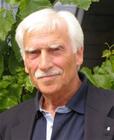To Be or not To Be an European - That is the Question
Ralitsa Kovacheva, September 21, 2011
 The general elections in Denmark have ended with a result, which makes life for the elected parliamentarians even more difficult than it was before, experienced Danish journalist and European correspondent Peter von Kohl commented especially for euinside. It is not news that once again the government in Copenhagen will be a coalition. Rather, the news is that for the first time it will be headed by a woman - Helle Thorning-Schmidt. She leads the so-called Red bloc, composed of various parties from the left side of the political spectrum that have won a thin majority of only five seats.
The general elections in Denmark have ended with a result, which makes life for the elected parliamentarians even more difficult than it was before, experienced Danish journalist and European correspondent Peter von Kohl commented especially for euinside. It is not news that once again the government in Copenhagen will be a coalition. Rather, the news is that for the first time it will be headed by a woman - Helle Thorning-Schmidt. She leads the so-called Red bloc, composed of various parties from the left side of the political spectrum that have won a thin majority of only five seats.
"The ability of the new PM to find common ground for all these four parties will  show her capacity," Peter von Kohl wrote. He believes that the new cabinet will consist of the Social Democrats of the future prime minister (44 seats), the Socialist People's Party (16) and the Social Liberal Party (17). But in order to secure a majority in the 179-member parliament Helle Thorning-Schmidt will need the support of the far-left Red-Green Alliance, which has won 12 seats.
show her capacity," Peter von Kohl wrote. He believes that the new cabinet will consist of the Social Democrats of the future prime minister (44 seats), the Socialist People's Party (16) and the Social Liberal Party (17). But in order to secure a majority in the 179-member parliament Helle Thorning-Schmidt will need the support of the far-left Red-Green Alliance, which has won 12 seats.
Although the election ended 10 years of centre-right governance of Denmark, in fact the ruling Liberal Democratic Party of Prime Minister Lars Lokke Rasmussen had won the most of the seats in Parliament - 47. The third parliamentary force with 22 seats is the Danish People's Party, determined by observers as far-right and populist.
As Jonas Parello-Plesner with the European Council on Foreign Relations wrote before the election, “this election is about the three E’s: economy, economy, economy”. Like what happened in many European countries over the past two years (the Czech Republic, the Netherlands, Ireland, Portugal, Finland) the government lost because of economic problems and the need for budget constraints. No government was re-elected once it started spending cuts, reduced social benefits and increased the retirement age. (Estonia is the exception that proves the rule, because the country is one of the few in the EU without fiscal problems.) Significantly, Jonas Parello-Plesner quoted one of the most influential European politicians, the Prime Minister of Luxembourg and Eurogroup President Jean-Claude Juncker, as saying:"We all know what to do, but we don’t know how to get re-elected once we have done it."
What is happening in Denmark is not isolated from the European economic crisis but "no Danish politician has addressed the question of how Denmark’s economic choices relate to or can address Europe’s larger problems, despite the fact that European partners make up more than two-thirds of Danish trade, and that up to 70 percent of Danish law-making springs from the European well," Jonas Parello-Plesner wrote. "The EU might not be on the agenda, but the Danish elections are a telling reflection of Europe’s ills, and an illustration of why there is a dearth of national answers to the current crisis."
The European topic is simply being ignored because Europe is too complicated to explain to the voters. "In election campaigns, politicians promise things. Europe is hard to make promises about." Moreover, when politicians "simply haven’t resolved the bigger question of why and how European nations can benefit from working together in the years ahead."
It is far easier to explain to voters the re-introduction of border controls, as Denmark did, especially when it happens just before the election campaign in order to get the support of far-right Danish People’s Party for the government’s economic measures, the analyst notes. This is an example how "short-sighted action by member states … is chipping unnecessarily away at the cornerstones of European integration."
The election results in Denmark are no exception of the trend of a "left shift" in Europe as a reaction to the severe budget constraints, unemployment and negative economic forecasts. However, there is still more apparent blurring between right and left, on the one hand because politicians flirting with populism and on the other due to economic realities – when a country simply fails to balance its budget and is pressed by a debt burden whatever the government it has no choice but austerity. Especially when the budget control is passing on to a higher European level, along with all the innovations of the EU economic governance.
 In this sense, avoiding the European topic by Danish or else European politicians delays but does not remove the need for the changes that need to be explained to the citizens. Especially in Denmark, which is going to take the EU presidency from 1 January 2012. And there will be changes, including that national leaders can no longer speak one thing in Brussels and another thing at home. Although it is very convenient for them in election times to pretend that Europe is not here, it is here indeed, staring more acutely in their national budgets and economic policies. As the debt crisis clearly showed, the problem of drowning countries is not just a problem of their own, because we are all in the same boat.
In this sense, avoiding the European topic by Danish or else European politicians delays but does not remove the need for the changes that need to be explained to the citizens. Especially in Denmark, which is going to take the EU presidency from 1 January 2012. And there will be changes, including that national leaders can no longer speak one thing in Brussels and another thing at home. Although it is very convenient for them in election times to pretend that Europe is not here, it is here indeed, staring more acutely in their national budgets and economic policies. As the debt crisis clearly showed, the problem of drowning countries is not just a problem of their own, because we are all in the same boat.